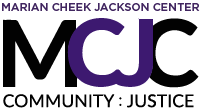or “What’s in that secret sauce?”
1. Listen. Then listen again. Then listen again.
Question your own ego-filters. Listen beyond informational data for image, pause, rhythm, withdrawal and silence, emphasis. Listen until what you hear becomes you. Listen to be changed. Listen to witness.
2. Respond. Assume response-ability.
Understand oral histories as a call to action. Following the values and vision that shape memory into narrative, engage your ability to respond in kind. This will require “emergent strategy” and creative initiative. Try to do justice by what you hear. Perform loving acts of witness.
3. Work beyond an oppositional politics.
Unlike a classical organizing model that targets what we oppose, focus on what we’re for. In the spirit of Beloved Community, focus especially on building connections, partnerships, and “matchmaking” of all kinds: neighbor and neighbor, resource partners, eager community members and homes. Find what’s in it for everybody. Co-labor.
4. Beware of best intentions.
These *can* be informed by liberal pieties and good-for-you goals that confound the radical work of community-first leadership. Check your enthusiasms against those of community members. Ask.
On the other hand: offer all the old-school benefit of the doubt. Just go ahead and assume the best. It’s courteous, kind, productive, interesting and foundational to just about everything we do. As needed, yes: ask—and listen. Hear yourself say: oh, I didn’t get that! Ideally then: Laugh.
5. Refuse to represent.
The Jackson Center by no means speaks for the community. We can testify to, organize around, and advocate for what we have heard. We can and must listen forward into community justice. We can bring our distinct gifts and privileges to bear in serving those community interests in which we have been schooled. But we cannot and will not be cornered into obscuring the widest possible range of community perspectives and capacities. Remember that “Northside” is broadly, wonderfully heterogenous (to say the least); recall “the danger of a single story.”
6. Celebrate.
Not as an after-thought but as a primary way of recognizing personhood, declaring place, renewing spirit, making necessary connections, honoring accomplishments, and calling up the power of triumphant action—whether at a major event or when someone walks in the door. Be present to abundance in the moment.
7. Cultivate an ethnographic spirit.
Wonder: a. rapt attention or astonishment at something awesomely mysterious or new to one’s experience. b. a feeling of doubt or uncertainty. Claim both.
Continually wonder: What makes this community unique? How does this community–or do community members–do things? What are the codes and customs with which community members identify–at the deepest and most mundane levels? Why and how? With what complexity? Who am “I” in relation to the cultural banquet that is unfolding before me and what do I bring? Then ask: How can I participate accordingly, with respect and devotion?
8. Criss-cross differences.
Make a mess of lines conventionally distinguishing race, class, religion, ancestry, town-U-community—the list goes on. Make a fool of yourself occasionally. Expect in turn to get bumped and bruised. Those lines keep us secure and separate in our differences. Consider: what if we neither ignored difference nor reiterated categorical differentiation in our daily practices? What if difference was at the center rather than the periphery of all social relations . . .? What if . . .?
9. Assume the Right to be Raggedy (title credit: Jasmine “Juice” Farmer).
To be responsive means to be in process. Try things out. Fail fantastically. Offer your work in progress. Neither you nor your work have to be perfect. The work of community sure isn’t. In fact, as we all know, the beauty of life is in its sometimes awkward imperfections. Risk beauty.
10. Practice gratitude.
For many reasons but mostly because our neighborhood compatriots model it daily–and because we get to work with them.
11. If all else fails, go back to #1.
